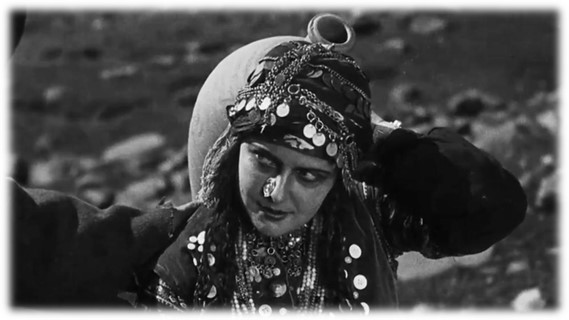Introduction:
Talking about women and their problems goes directly into a feminist topic in which attempts are made to solve women's problems. If we look at the beginning of the rise of feminism, we must go back nearly two centuries when it first emerged as a word in 1837 by Charles Fuggier (philosopher, economist, and socialist) in France. It later reached countries such as Britain, the United States, Australia, India, and China. According to the Oxford English Dictionary, the word feminist was first used in 1852 and the word feminism in 1895. However, feminism as a movement or revolution emerged in the late nineteenth and early twentieth centuries in four waves, the most famous of which is the second wave.
As this revolution spread around the world to the Middle East, Kurdish women more or less took part in this revolution. If the beginnings of Kurdish feminism were the institutions that women established at the beginning of the party struggle, we must say that the women's struggle at that time was more a national struggle than a struggle that directly focused on women's problems.
This has been the case to some extent in ancient Kurdish history, where women fought alongside men in tribal warfare. Some women played important roles; Among these, we can mention Ms. Halima Hakkari, who ruled the Bashkala region. In her youth in 1909, Fatima was the chief of the Azdinan tribe and was called queen by her people. Ms. Maryam from the famous Nahri family had great power among her followers. "Adela Khanm" was called Shazaday Sherazhn (brave princess), by the British, she is said to have saved the lives of many British soldiers during World War I. Asinat Barzani, who lived in the 17th century, is considered the first female rabbi in Jewish history. Mastura Ardalan was a Kurdish poet and writer who became famous for her literary works. Princess Khanzad ruled the Soran Emirate, whose castle still stands on the road between Erbil and Pirmam. Although these were not women who were directly influential in the process of women's advancement, which means they did not leave a manifesto for Kurdish women, their ability and courage cannot be denied.
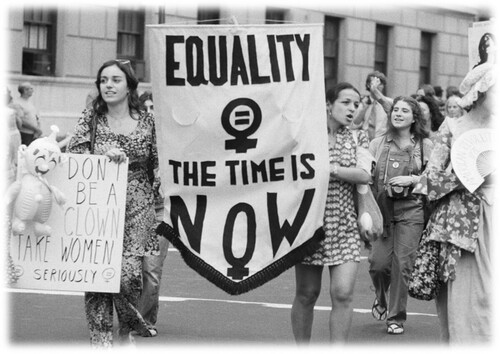
Let's go back to the modern era. As I mentioned, the beginning of the Kurdish feminist struggle coincided with the party struggle of the Kurdish nation, which was an important step to move women from inside houses out where their duty was only raising children and housework. What I mean in this discussion is the interconnection of the women's issue and the Kurdish issue, which are shared both in the modern political struggle and Kurdish cinema. In other words, the issue of women has been a significant point since the beginning of Kurdish cinema.
Apart from the issue of the existence or absence of a Kurdish cinema, the concept of feminism, whether as a movement or theory, has not yet been properly established and attempted among the Kurds; therefore, we cannot say that we have Kurdish feminism or feminist cinema, but it is an undeniable fact that women have been a major theme in most Kurdish films alongside Kurdish politics.
In the following of this article, I would like to briefly discuss the definition and history of feminist film, when and how it emerged. However, the purpose of this article is general research on the role of women in Kurdish cinema and in what form women are portrayed.
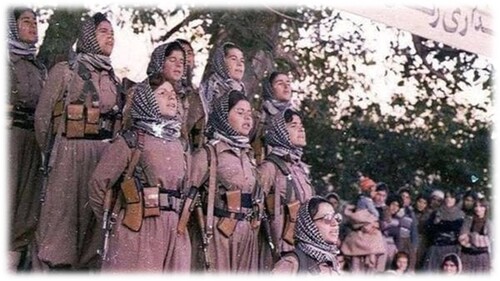
What is feminist cinema and when did it emerge?
In simple terms, feminist cinema is cinema that talks about women, their problems, and marginalized issues; in other words, it is a cinema that stands against the portrayal of women as the second gender.
With the development of the world and the increasing replacement of television and mass media, most notably cinema, experts and critics have emerged concerns about the impact of mass media on society and the individual. The key question was what messages does the mass media convey to the individual viewer? Since the mass media directly or indirectly influences the path of the next generation, the content of programs, news, and films must have value and not be misled or systematically controlled.
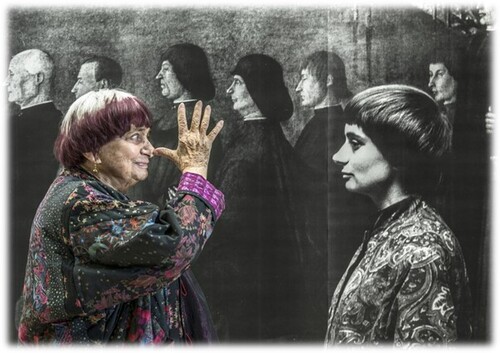
With the influence of the mass media and the second wave of feminism, in the 1960s and 1970s, feminists based their work on feminist intellectual writings such as "A Room with a View" by Virginia Woolf, "The Second Sex" by Simone de Beauvoir, and psychoanalysis made it critical of the role of women portrayed in the mass media. This marked the beginning of the rise of feminist film theory and paved the way for films in which women played a leading role in addressing issues that had been marginalized or not considered important. If "Jean Dilman" by Chantal Ackerman is not the first of such films, it is certainly one of the most important that deals with a marginalized subject such as the Sisyphean work of a housewife.
Feminist film theory directly targeted Hollywood cinema and challenged the image of women that had been portrayed for years. The most important and well-known of this trend are "Claire Johnston, Mali Haskell, Teresa de Larites, Rosalind Coward, and Laura Malvie". Each of these critics of feminist film theory questioned the role of women in the films shown so far in different ways. "In public cinema, women are only known as complements to men, with men as active characters and women as passive characters," Claire Johnston said. She believed that even cinematic elements such as editing, decoupage, and filming are masculine. Theresa Delaretis believed that cinema technology, like other man-made artifacts, shapes gender and social roles, when they do not exist. Laura Malvie, the most important and well-known feminist film theorist, has a discourse entitled "Visual Pleasure and Narrative Cinema" in which she argues that official Hollywood cinema is a masculine cinema in which women are constantly under the male gaze; therefore, cinema must be emptied of this masculine pleasure.
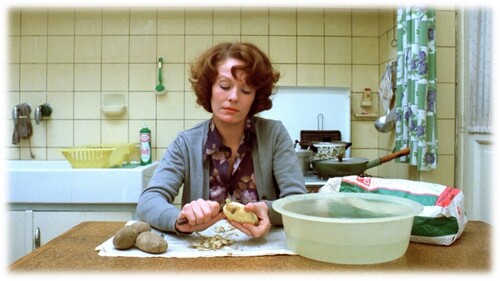
On feminist cinema, Anisvarda, known as the mother of the new wave of French cinema, said in a speech at the Cannes Film Festival: Feminism is not a revolution against men, nor is it a kebab skewer that if you warm one side, I will do the other side as much as I can. We only strive for equality. Let us not forget that there are men in our time who have respected and striven for feminist values, people like Bergman, Tarkovsky, and Godard. These cannot be ignored, but there are men in the film industry who have taken women's rights and ignored them, but our revolution to improve the situation continues.
To be continued...

